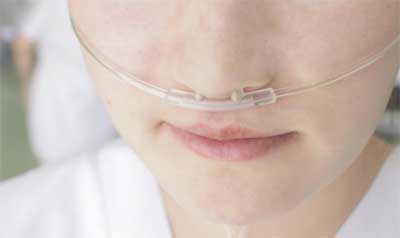- Home
- Editorial
- News
- Practice Guidelines
- Anesthesiology Guidelines
- Cancer Guidelines
- Cardiac Sciences Guidelines
- Critical Care Guidelines
- Dentistry Guidelines
- Dermatology Guidelines
- Diabetes and Endo Guidelines
- Diagnostics Guidelines
- ENT Guidelines
- Featured Practice Guidelines
- Gastroenterology Guidelines
- Geriatrics Guidelines
- Medicine Guidelines
- Nephrology Guidelines
- Neurosciences Guidelines
- Obs and Gynae Guidelines
- Ophthalmology Guidelines
- Orthopaedics Guidelines
- Paediatrics Guidelines
- Psychiatry Guidelines
- Pulmonology Guidelines
- Radiology Guidelines
- Surgery Guidelines
- Urology Guidelines
Oxygen therapy could prevent dementia in COPD patients

The research team found that blood flow and oxygen delivery to the brain was significantly increased during reading. This was due to blood vessels in the brain becoming dilated in response to the greater oxygen demand when the brain was active. It can thus be concluded that when COPD patients receive the additional oxygen it improves the function of blood vessels in their brain.
This study showed that providing extra oxygen improves the function of blood vessels in the brain by matching blood supply to the demands of the brain activity. However, COPD patients typically use this extra oxygen therapy throughout the day and for long periods of time, potentially years.
The study does not indicate the influence of long-term oxygen therapy on the function of blood vessels in the brain. Despite these potential limitations, this work has set the foundation for the researchers to investigate the biological systems that control oxygen delivery to the brain.
"Oxygen therapy improves cerebral oxygen delivery and neurovascular function in chronic obstructive pulmonary disease patients. This improvement in cerebral oxygen delivery and neurovascular function might provide a physiological link between oxygen therapy and a reduced risk of cerebrovascular disease (e.g. stroke, mild cognitive impairment , nd dementia) in COPD," concluded the study.

Disclaimer: This site is primarily intended for healthcare professionals. Any content/information on this website does not replace the advice of medical and/or health professionals and should not be construed as medical/diagnostic advice/endorsement or prescription. Use of this site is subject to our terms of use, privacy policy, advertisement policy. © 2020 Minerva Medical Treatment Pvt Ltd